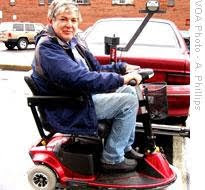Hug a Firefighter Two Days After Valentine’s
at Noon or 6:30; Get a Bowl of Chili
This invitation has 6 parts (some of which the author did not complete because he is too wordy):
- Details of the Tuesday February 16th event at the Addison Court social hall. There will be two sittings; Noon and 6:30 PM. Feel free to go to one or the other and fill out the signup sheet. Be there or be square.
- Why hug a firefighter (male or female) from the Alpha Fire Company’s Main Office on Beaver and Atherton. [No question mark required.]
- What to do in the case of a fire.
- Come spring you can bring your grandchildren to the fire house and see the pretty trucks. When 83 year-old Lillian Hutchison swings down the fire pole I want to take a photograph.
- Participation as a fire warden—the Arnold Addison Court Fire Safety Committee, Carol Ames co-chair, needs you to volunteer as a part time FIRE WARDEN so we can have back up wardens in case your floor’s regular fire warden decides to spend two days gambling in Harrisburg. Please give Sherry your name and I will get back to you.
- As my maternal grandmother once told me (and she was a wild one) when it comes to hugging, be moderate.
Details:
- One hundred bowls of Webster’s Bookstore and Café’s famous vegetarian chili will be served at the noon and 6:30 sittings.
- That chili will be served to our frontline firefighters, you, Steve Bair, Council of Governments Director of the Office of Fire Administration, Alpha Chief Keith Yocum, Alpha’s Jackie Richardson, and government officials.
- Residents are asked to provide additional food and cash donations.
In the event of a fire:
- Call 911 and report (even if you are not sure if someone else has reported). Addison Court is a safe building. It has an excellent sprinkler system. The biggest danger to residents is if we panic and do not rely on our fire wardens and most importantly the men and women of Alpha Fire Company to come and tell us what to do. Even on the 8th floor, Alpha firefighters will know how to get you and your power chair safely out of the building.
- Relax. Stay in your apartment and wait for your floor’s fire warden. It takes fewer than 10 minutes for Alpha firefighters to get in their trucks and come here.
Do NOT take the elevator. Do NOT go downstairs. Do NOT evacuate the building. Listen to your fire warden who may decide to have you move to the stair well to wait for Alpha. If you move, be
sure to close your door. One reason it might be a good idea to move is because there might be smoke
and staying on your floor but moving to a stair well where there is no smoke will make your
breathing easier.
**Note well; Your February 16th hug will not save your life. It will make you feel better to know
you expressed appreciation before you needed help.
--Joel Solkoff, co-chair, Arnold Addison Court Fire Safety Committee.




